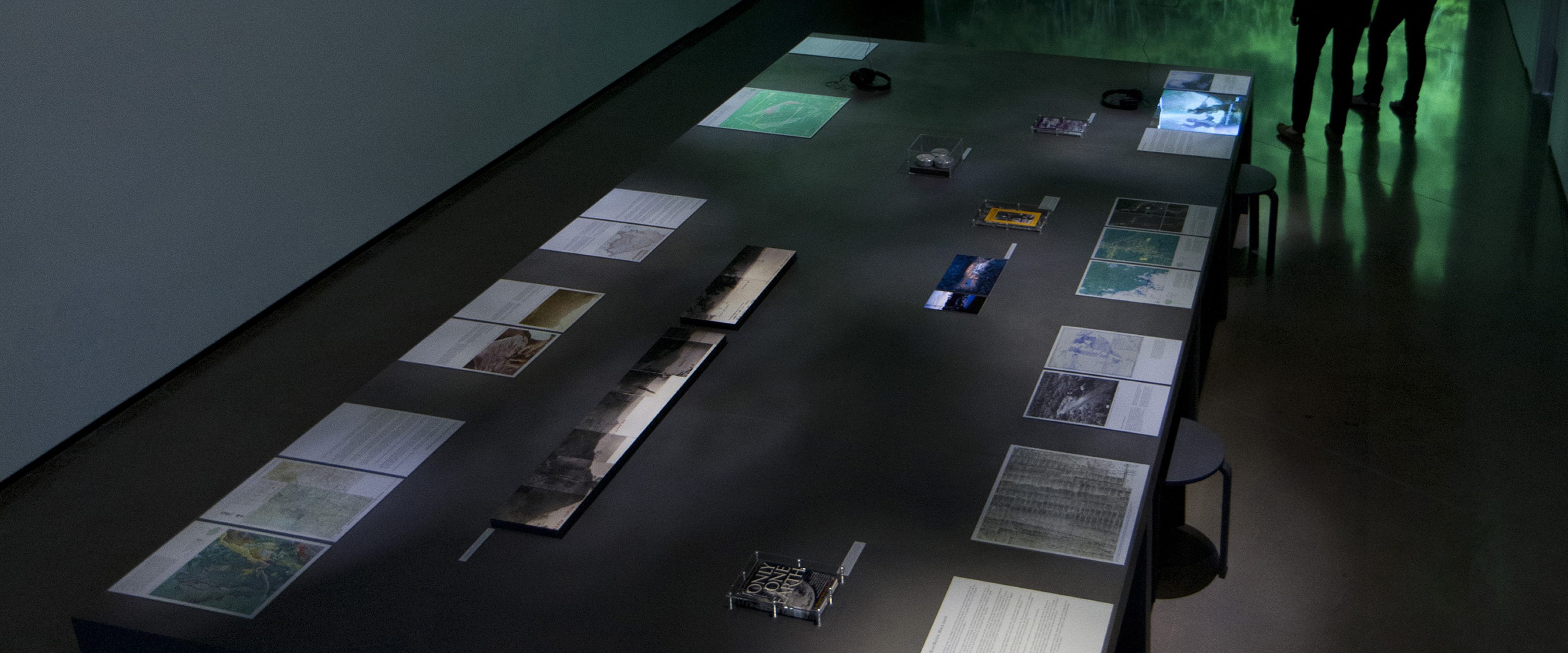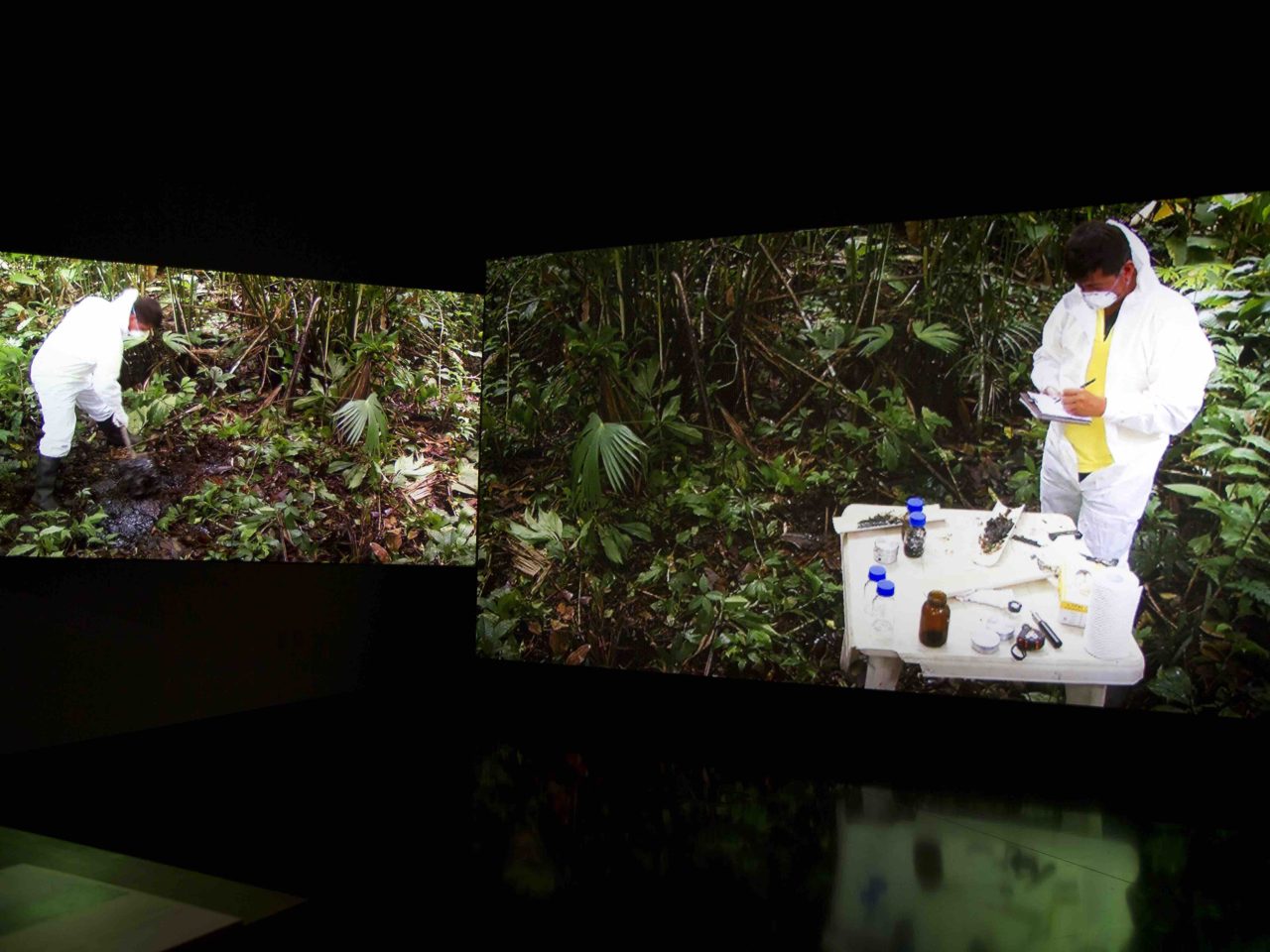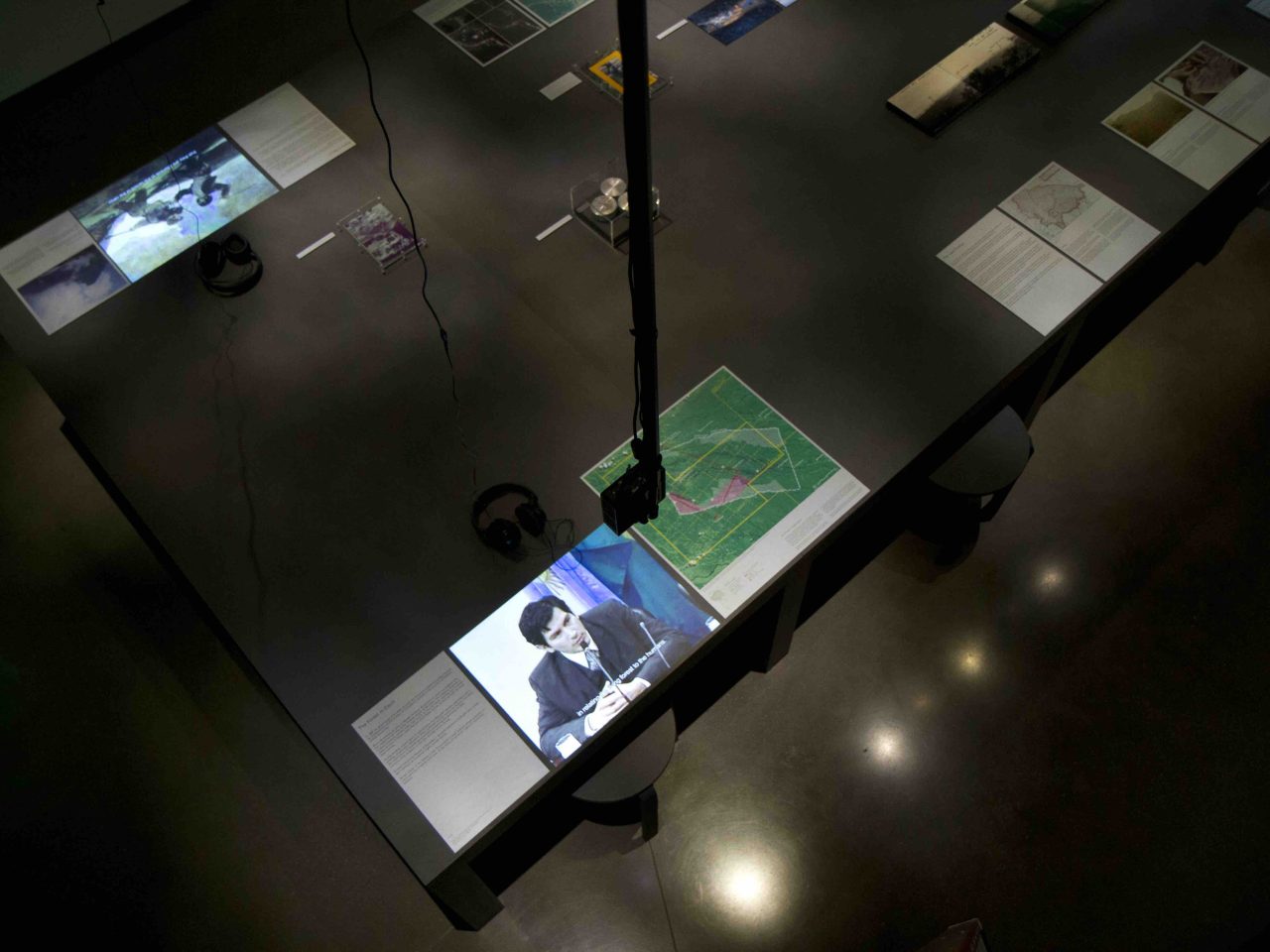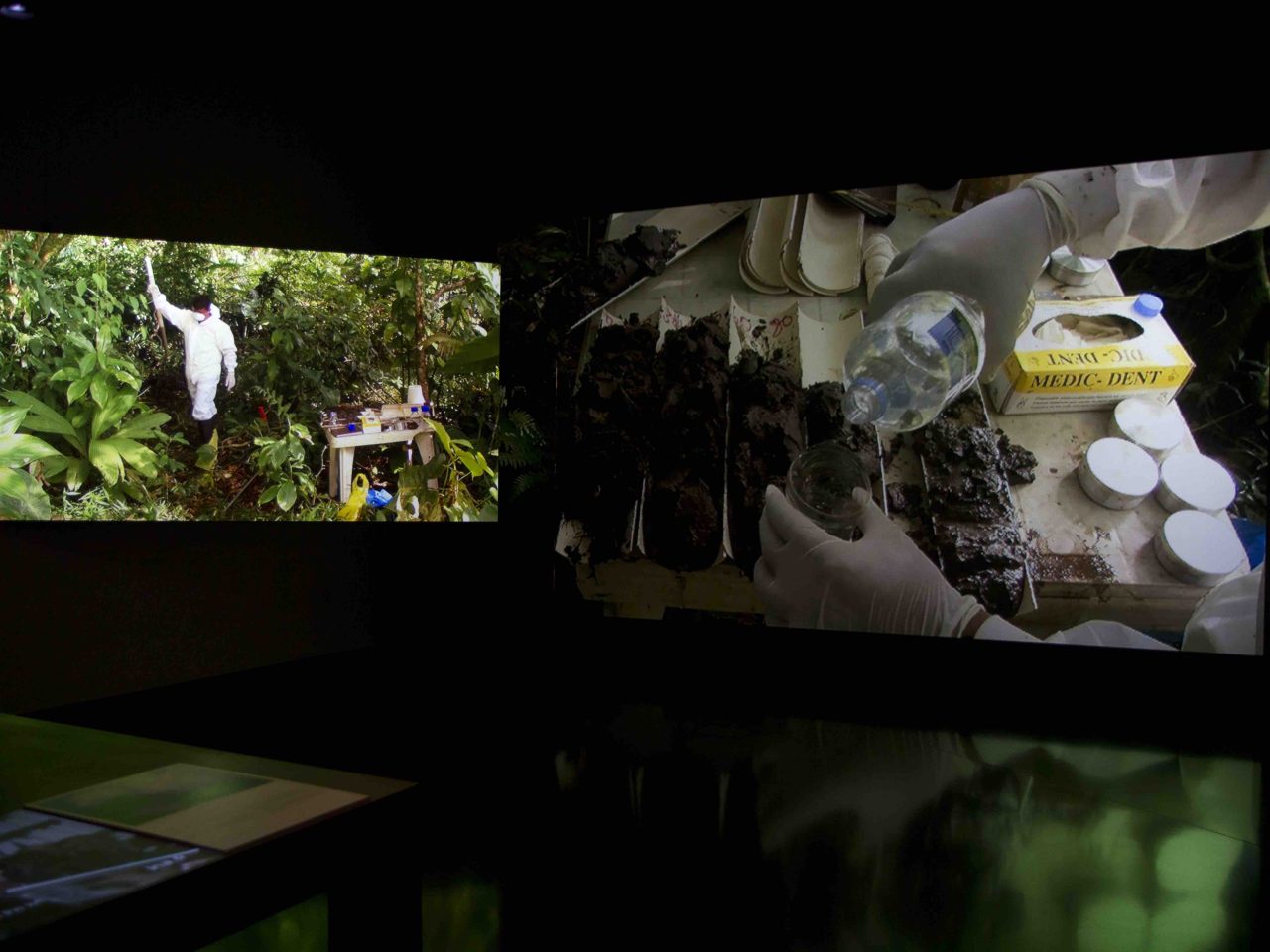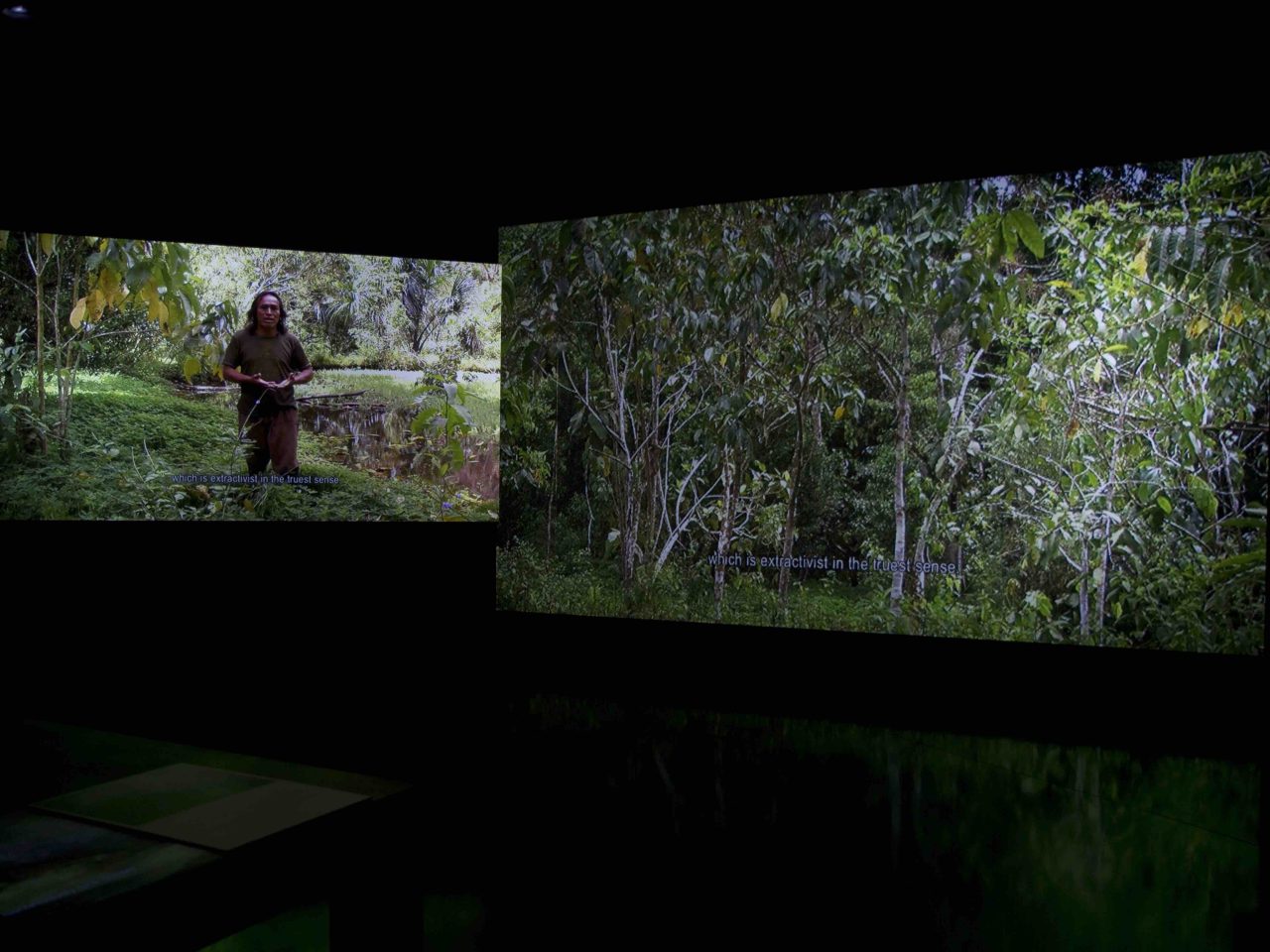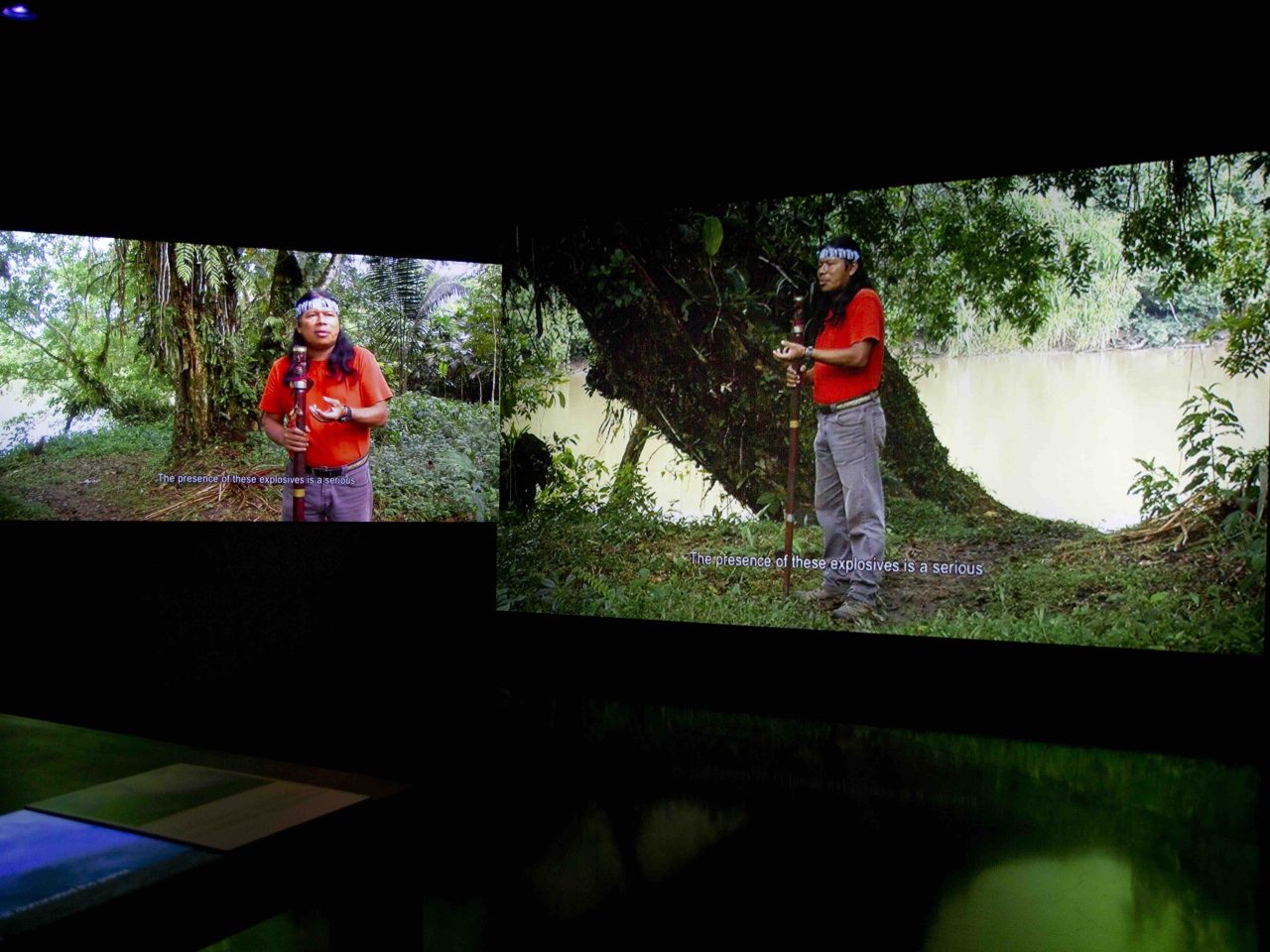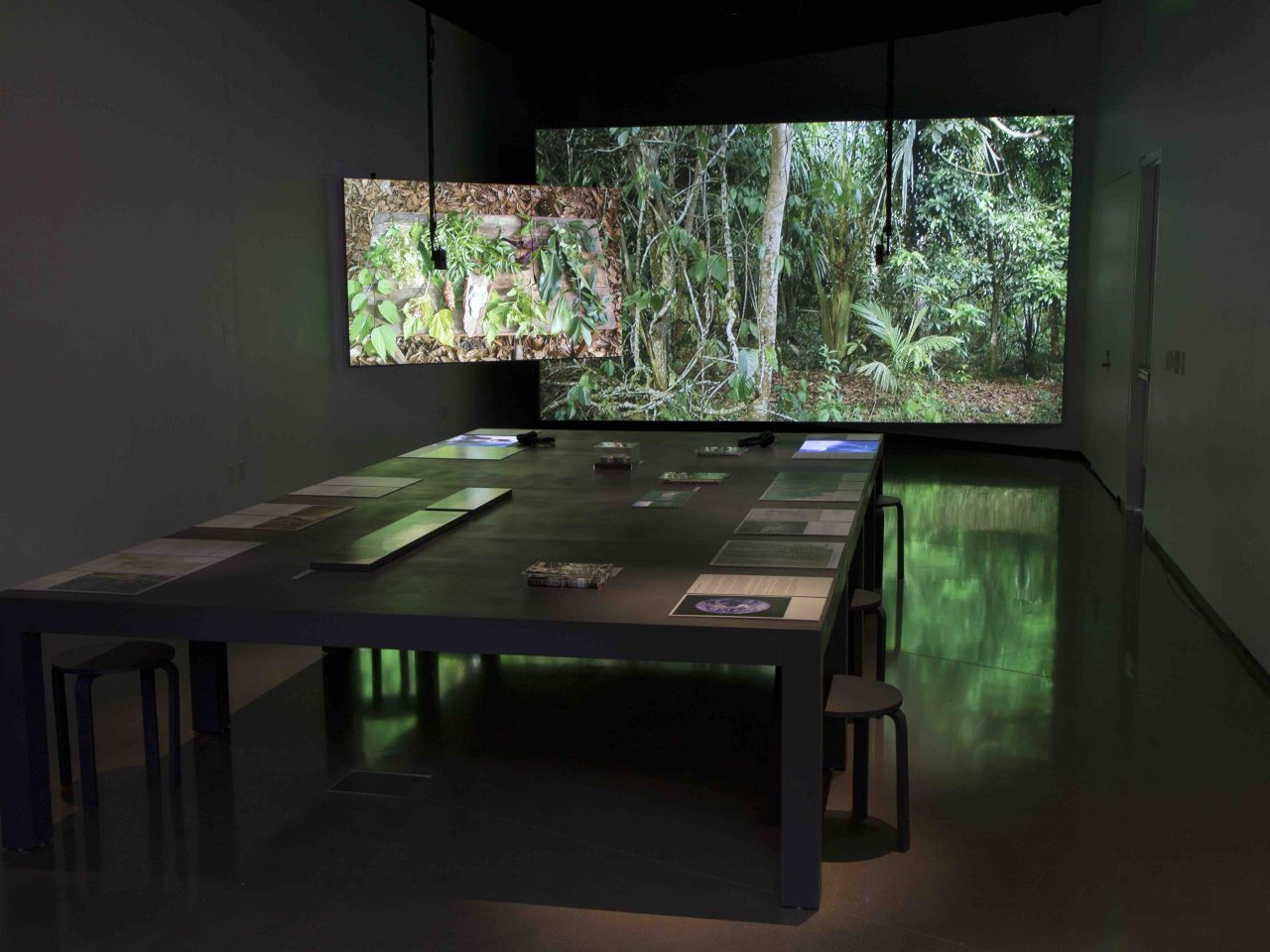The Land Grant: Forest Law is organized by the Eli and Edythe Broad Art Museum at Michigan State University and curated by Yesomi Umolu, Assistant Curator. Support for this exhibition is provided by the Michigan Council for Arts and Cultural Affairs, an award from the National Endowment for the Arts, the Swiss Arts Council Pro Helvetia, the Elizabeth Firestone Graham Foundation, and the MSU Broad’s general exhibitions fund.
About the Exhibition
As part of its newly inaugurated artists’ residency and commissioning program The Land Grant, the Eli and Edythe Broad Art Museum at Michigan State University presents an ambitious new research project by Swiss artist Ursula Biemann (b. 1955). Often the result of long-term research with an interdisciplinary group of collaborators, Biemann’s video essays are compelling investigations into global flows of people, resources, and information. Tackling subjects ranging from clandestine migration networks to water politics, Biemann interweaves vast cinematic landscapes with documentary footage and academic findings to narrate the causes and impact of these issues on geographically distant yet interconnected populations. Employing a decidedly non-linear format, her videos surface distinct and divergent perspectives, revealing the complexity of her subjects and the contemporary geopolitical terrain.
For The Land Grant: Forest Law, her first major commission in the United States, Biemann has conceived a mixed-media installation that draws from research she carried out with architect and urbanist Paulo Tavares in the oil and mining frontier along the rain forest of southern Ecuador. This area near the Peruvian border is considered the sovereign land of indigenous nations, and is currently under threat of exploitation from various national and international actors who seek to gain access to its untapped resources. Through the display of a synchronized double video tableaux, maps, and an array of materials and samples collected in this embattled territory, Biemann unravels the complex assemblage of land rights, ecological and mineral wealth, and private and public interests that animate the physical, mythical, and legal dimensions of the tropical forest.
Presented within the context of Michigan State University, where historically there has been a deep commitment to addressing ecological and environmental issues, The Land Grant: Forest Law prompts collective dialogue on some of the most urgent questions of our time. Namely, what role can science, indigenous philosophy, art, or international law play in constructing new models of coexistence between man and nature? A major component of the project is a public program with Michigan-based and national thinkers and academics that focuses on these themes, addressing in particular the case of Ecuador as well as that of the United States and of other international contexts. A publication documenting the Forest Law project, including video stills, commissioned texts, and maps by Tavares, will be produced in conjunction with the exhibition.
About The Land Grant: Art, Agriculture, and Sustainability
Positioned against Michigan State University’s history as a land-grant university and in relation to the school’s strong commitment to education in agricultural practice and land, water, and energy use, the MSU Broad’s The Land Grant project aims to explore contemporary art and architecture that works with and around these issues, both within the museum’s walls and across the university’s vibrant campus.
The Land Grant is an artists’ residency and commissioning program that offers an extraordinary context for artistic production focusing on issues such as food justice, farming, and environmental awareness. Each year, artists, architects, or collectives will be invited to undertake an ongoing research project or residency on the MSU campus, and will be given the opportunity to delve into the university’s rich history and relevant current practices across academic disciplines. Based at the MSU Broad and at times working in partnership with various schools and institutes on campus and in the surrounding community, the awardees will have access to what today are rare commodities in the art world: acres of land and a veritable think-tank of leaders in the arts, agricultural practice, and environmental studies.
